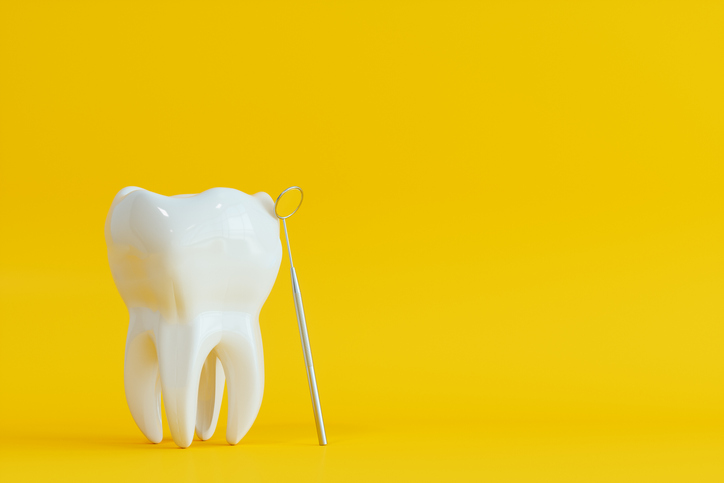
Molars rarely crack. But when they do, you need immediate treatment.
By adulthood, you’ll have 32 teeth. All are important, but the hardest working teeth in your mouth are your molars. With their large, jagged surfaces, the molars in the back and sides of your mouth are used primarily for chewing and breaking down food before swallowing. Despite their strength, molars can sometimes crack.
The most common reason for a cracked molar is biting down on hard food, such as nuts, ice, or candy. If you grind your teeth, your molars may break from the persistent pressure. A blow to your mouth from an accident or sporting event can damage a molar. Other factors that can cause a cracked molar include switching abruptly between hot and cold temperatures, old age, and even a two-large filling. Your dentist should examine a cracked molar as soon as possible.
How to tell if you have a cracked molar
Telltale signs of a cracked molar include pain when chewing and biting, heightened sensitivity to hot and cold temperatures and sweet-tasting foods, as well as swelling around the cracked molar.
In some cases, you may not even know you have a cracked molar due to a lack of symptoms! That’s why it’s essential to see your dentist regularly so they can spot a broken tooth and decide if treatment is necessary.
Your dentist will visually examine the tooth to see if it’s cracked. They may use a dye to highlight a fissure. If you bite down on something and feel pain when releasing the bite, your dentist may conclude the molar has a crack. Although an X-ray may not pinpoint a crack, the test can show any damage to the pulp. After reviewing all the tests, your dentist will initiate treatment.
How a cracked molar is treated
The severity and location of the crack dictate treatment. A minor or hairline fracture of the outer layer of the tooth, also called a craze line, doesn’t require any treatment. A simple polishing can erase the superficial crack.
However, if the crack is extensive but has yet to reach the inner pulp of the molar, your dentist may recommend a crown to protect the tooth. A crack that extends into the pulp with a risk of causing an infection will likely be repaired with a root canal.
In some instances, the crack may be vertical. Extraction may be best if the crack continues into the gum line.
Some cracks split the molar into two segments. If that’s the case, your dentist may be able to salvage part of the tooth.
If you think you’ve cracked a molar, promptly seek treatment. The sooner you see your dentist, the less likely complications, such as an abscess, can develop. Avoid chewing on the damaged molar as you wait for your dental appointment. Take over-the-counter pain medication if needed. To reduce swelling, apply a cold compress to your cheek. To keep your mouth clean, rinse with warm water.
Since your molars do so much work for you, you should take care of them. Don’t bite down on stiff objects like pencils or hard foods. Wear a nightguard at night if you grind your teeth or when playing contact sports. That way, your molars will always stay strong.
Your Espire dentists in Oklahoma
Schedule an appointment at Espire’s Norman, Oklahoma, location today! Our highly trained dentists can repair any cracks or damage to your molars. Don’t live near our Norman, Oklahoma office? Find one of our other locations near you.
Norman, OK
550 24th Ave. S.W.
Norman, OK 73069
